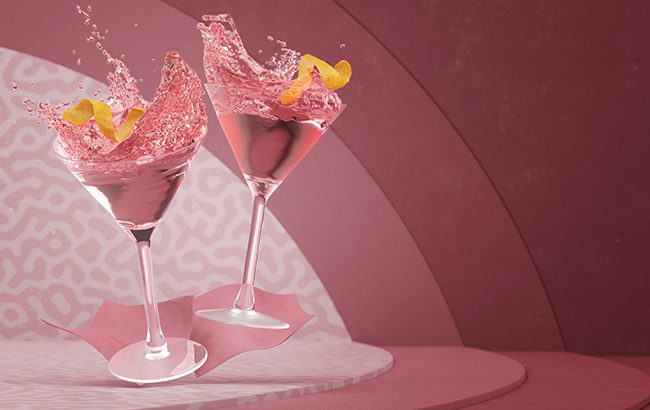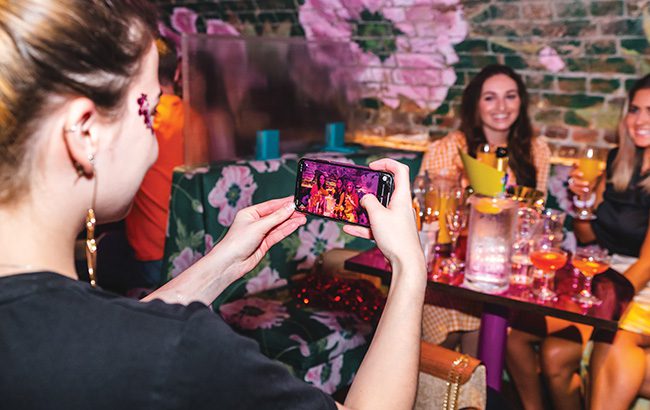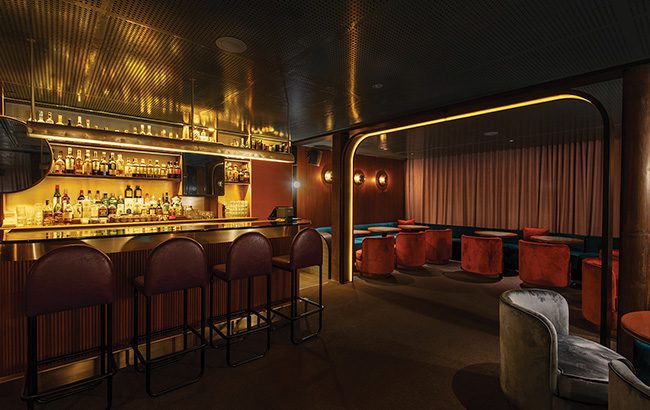This website uses cookies so that we can provide you with the best user experience possible. Cookie information is stored in your browser and performs functions such as recognising you when you return to our website and helping our team to understand which sections of the website you find most interesting and useful.
The transformation of the happy hour
By Claire DoddOnce a cornerstone of many bars’ success, happy hour is being tweaked in line with changing consumption patterns.

*This feature was originally published in the February 2023 edition of The Spirits Business.
It’s five o’clock, and the bar is empty. But not for long. As the after-work crowd rounds up the stragglers from the office, the orders from the happy hour menu start pouring in. Or at least, that’s how things used to play out before the world changed.
Covid‐19, cost increases, wars, changing lifestyles, staff shortages and the cost‐of-living crisis.
All these things and more have had a colossal financial impact on hospitality businesses and consumers alike over the past few years.
A recent study by Opinion Research found 55% of British consumers are spending less money in bars, while data consultancy CGA reports one‐in‐five Canadian consumers are planning to reduce visits to the on‐trade in the wake of rising costs.
So, are promotions and happy hours more essential than ever for enticing cautious customers to spend? Or can venues even still afford to discount in the face of rising costs? One thing is certain: as the world has changed, businesses have had to change too. For happy hours, that’s meant a rethink.
“The way people socialise since the pandemic has changed. The make‐up of the week has completely changed,” says Sarah Willingham, former Dragons’ Den star, and founder and CEO of Nightcap. The UK company, which has 47 bars across the country, owns The Cocktail Club brand, The Adventure Bar Group – which includes Covent Garden’s Blame Gloria, and the Tonight Josephine chain – and the Dirty Martini cocktail bar chain.
In late 2021 it bought Barrio Bars, a brand known for its happy hours andfixed‐price bottomless brunches, which attract a largely late Gen Z and early Millennial crowd. Themed on anything from Cardi B to bingo, ’80s pop to ’90s hip‐hop, attendance to the Saturday‐morning parties are available via pre‐booked tickets for £50 (sold as a minimum of four). Ticket buyers get a two-course brunch, bottomless drinks, including prosecco, for 90 minutes, and entertainment, as well an after-party from 4pm.
“It’s not all about discounting. It’s about what do you do to enhance the customers’ experience in that particular moment,” adds Willingham. But she warns against a discount culture similar to that seen in casual dining in the late 2000s, where two‐for‐one offers became so ubiquitous, customers became reticent to enter some venues without them.
Happy hours account for less than 20% of business in the group but are a vital way of keeping customers in venues longer, adds Willingham. “We’ve seen that, especially in the downturn, people want to know exactly what they’ll get and for how long. That really helps people with planning their monthly budget,” she says.

Rising costs, a fundamental shift in consumer mindsets, and a move to partially working from home has meant the hours, days, and content of the group’s happy hours have had to change too.
“Friday is definitely something we’ve had a big discussion over,” she adds. “It used to be a massive night, but it is nowhere as big as it used to be. It’s much more about Saturday. We’ve looked at what offers we can have on a Friday night, which we’d never have done before.”
In The Cocktail Club, the company has now changed its happy hour to let customers sample the whole menu – even its most premium serves – on a two‐for‐£12 offer from 4pm‐7pm every day.
Happy hour in Singapore
In the business hub of Singapore too, leading bars have been looking closely at this new consumer landscape and have adapted.
“It used to be almost purely tactical,” says Indra Kantono, co‐founder of the Jigger & Pony Group, alongside his wife Gan Guoyi. Seen as pioneers of cocktail culture in Singapore, the duo opened Jigger & Pony in 2012; it’s currently ranked 12th on The World’s 50 Best Bars 2022 list. They now have three additional bars (Gibson, Live Twice, and Sugarhall) and three restaurants (Humpback, Caffe Fernet, and Rosemead) in Singapore.
With a business‐led market, its daily happy hour from 6pm‐7.30pm is a tool for encouraging the after-work crowd, “a big group of people who don’t drink cocktails as a default [in Singapore]”, says Kantono.

“We’ve always had a happy hour in our bars. Offering something price‐accessible was the goal. Post‐Covid, we have to be a little bit more strategic. Now, our happy hours reflect the core offerings of each brand.”
Shifting the offer away from approachable drinks with the best margins to its core drinks, they’ve reduced the number of wine and beers, instead focusing on the signature cocktails of each venue, such as Jigger & Pony’s bestseller, the Yuzu Whiskey Sour. Though it gives existing customers a reason to come in early, it’s mainly a calling card to new customers.
“We see it as a way to establish new habits, and introduce guests to us, so they will come back again for the full offering,” adds Kantono.
Targeting serves that are the most repeat‐purchased also helps maintain margins.
Drinks on the core menu go up to SGD$28 (US$21), whereas happy hour cocktails are SGD$18. Repeat purchases, partnering with brands, and devising some happy‐hour specials with premium rather than super-premium spirits means the margin on a happy‐hour drink is around 71%-73%, compared with 75% on the core menu.
At Jigger & Pony, happy hour contributes to about 15% of the business. “We may reduce it over time, but we don’t want to take it away completely. We don’t want our brand to become inaccessible to this audience,” Kantono says.
In Mexico City, Ritual Hospitalidad, which owns Licorería Limantour (number four in The World’s 50 Best Bars 2022) and Baltra Bar (number 32), is taking a different approach.
At Baltra, when action was needed to save quiet Tuesday nights, the company decided to specialise in a serve that wasn’t yet common in the city, to stand out. Martini Martes, or Martini Tuesdays, was born.
Different twist
A different twist is offered on the Martini serve each week, backed by a changing array of brand partners, and guest shifts from visiting bartenders.
Priced at MXN$150, or around US$8, drinks on the core menu sit around US$9–US$13.
In a market dominated by beer and only just embracing cocktails, it was a bold move. After starting it two years ago, Tuesday is now the bar’s third biggest night.
“We’ve been very careful about not having offers across all our concepts,” says Alberto González Rivas, director at Ritual Hospitalidad.
“Tuesdays were the worst day. We were very worried. Martinis are something risky in Mexico. They’re expensive. But we’re very passionate about what we do, and we know cocktails. Martinis are a classic, and our audience were in need of those kind of drinks, but at a special price.
“We claimed to be preparing the best. That can be very arrogant and can sound very empty. But if you put your heart and your brain behind it, it can grow your business significantly. It’s been a great way to learn that offers are very important.”

